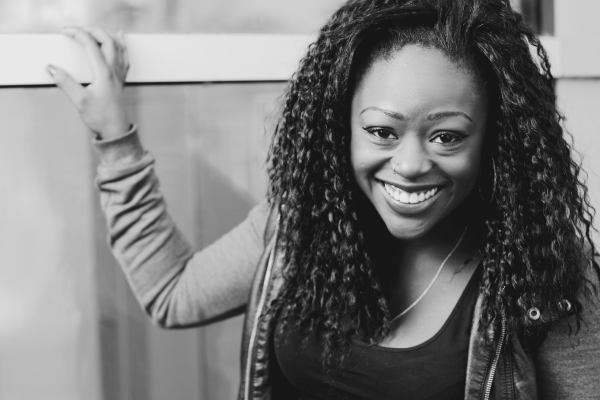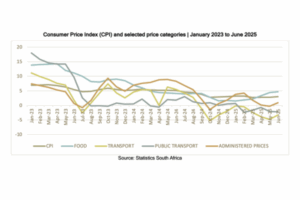Young women make important choices regarding careers, relationships, and family as they enter the world of work. These decisions influence their future and society. The Decisions for Life (DFL) Trade Union Campaign shares insights from young women workers to help create a more inclusive workplace and trade union environment.
Challenges faced by young women workers
Young women in the DFL campaign reported feeling stressed, anxious, fearful, and sometimes in despair when dealing with workplace challenges. They often encounter discrimination, from their age, gender and sexual orientation to race. These challenges include limited opportunities for advancement and a lack of support from employers and, at times, unions.
They often encounter discrimination based on their age, gender, sexual orientation and sometimes race, with inadequate opportunities for advancement and a lack of support from employers and sometimes even unions.
Many young women are trapped in low-paid, part-time, and insecure jobs. They are frequently seen as cheap labour, filling roles with long, poorly paid shifts and minimal protection against dismissal. The drive for profitability often means employer obligations such as maternity protection, family responsibility leave, and health and safety measures are ignored or compromised.
Many young women are vulnerable to exploitation because they lack knowledge of their labour rights and trade unionism. Cultural norms further limit their decision-making power at work and home. Gender roles often define young women as caregivers, requiring them to be feminine, attractive, sweet, and ever-willing to nurture others.
“Young women are often not in charge of their lives, and decision-making is often left in the hands of men that are unaware of the issues affecting young women. We say stop the exploitation of young women at the workplace!”
— Participant, Decisions for Life Campaign
Sexual harassment, lack of job security, and undermining of personal dignity further exacerbate these challenges. Many young women feel they are under constant surveillance, both at work and within unions.
Creating "safe spaces" in unions
Safe spaces are environments where individuals feel supported, respected, and free to express themselves without fear of judgment, retaliation, or harm. These spaces can be physical (e.g., meeting rooms) or psychological (e.g., prioritising trust and confidentiality).
Creating safe spaces for young women to speak out is essential. Safe spaces allow workers to feel seen and valued – a crucial foundation for collective action. Unions empower workers to claim their rights. For this to happen, workers must feel secure enough to share their experiences and observations.
The DFL campaign emphasised creating safe spaces for young women, recognising the unique challenges they face in the workplace and society.
“We created spaces and conditions where each person develops the ability to act - by reflecting on and locating their own experiences within broader institutional power relations, as well as choosing how to respond to these power relations in their personal lives, work, trade union contexts, and within broader society.”
— Nina Benjamin, LRS DFL coordinating team.
Safe spaces encourage young women to model behaviours and practices that support change in workplaces, unions, and communities. The DFL campaign used mind-body exercises such as Tai Chi to help women connect with their bodies, build self-esteem, and gain a sense of collective strength.
“A safe space is a space where one can talk freely, knowing that people will not judge you. It’s an environment where one can open up and share fears, challenges, and achievements, trusting that these will not leave the space in a harmful way. DFL monthly meetings became a safe space for young women to open up. It feels like home.”
— Member, Johannesburg DFL Campaign team
Organising and bargaining: Building unions that welcome young women
The ideal world of work for young women would be one where they are seen, valued, and respected. They would be recognised not just as workers but as whole individuals with diverse needs and aspirations. Achieving this vision requires fundamental shifts in workplace culture and societal attitudes toward young women.
Unions have the power to create better workplaces for everyone, but many young women still do not see unions as spaces designed for them. Historically, unions have been male-dominated, with little room for young voices, especially young women. For unions to thrive, they must make young women feel welcome, heard, and represented.
This transformation begins with leadership. Imagine walking into a union meeting and seeing leaders who look like you, understand your struggles, and actively advocate for your rights. Mentoring and encouraging young women to take on leadership roles injects fresh, inclusive energy into unions.
Unions must also fight battles that matter most to young women, such as unfair pay, workplace violence and harassment, maternity leave, and flexible working hours. Communicating these efforts effectively is crucial. Traditional approaches often fail to engage younger workers. Social media, podcasts, and digital campaigns can make unions feel more relevant and approachable, connecting with young women where they already are.
Ultimately, unions must be spaces where everyone – regardless of age or gender – feels safe and respected. This means actively challenging sexism and outdated attitudes, both in workplaces and within unions.
Building unions that work for young women is about creating a stronger, more dynamic trade union movement that is ready for the future. Young women bring energy, ideas, and fresh perspectives, and unions need them just as much as they need unions.
The DFL campaign integrated consciousness-raising, recruitment, and organising as part of the struggle against oppressive gender relations. It showed that trade unions can play a transformative role in organising young women workers. To build on this momentum, unions must continue to: Institutionalise gender-sensitive policies within their structures; create more inclusive spaces that value young women’s contributions; invest in education and leadership programs for women workers.
As one participant stated:
“I am now organising young women with a purpose. This is not just about wearing the t-shirt. Before, recruitment felt like an obligation. Now, I feel I have a bigger purpose - a purpose to assist other young women, women like me.”
Recommended resources:
- The LRS Framework for Negotiating Conditions at Work: Practical strategies for negotiating better conditions at work, no matter where the workplace is located, no matter what the status of workers, and no matter how unorganised workers are.
- Bargaining for Gender Equity: Effective approaches to addressing structural gender inequities in the workplace and the trade union.







